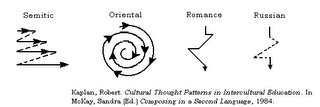Songwriting myth #2:
-->Autobiographical songs - songs that come from deep within the writer - are inherently more powerful and meaningful than "made-up" songs which have no basis in reality.
Not necessarily.
When I bring a new song to practice, the first question is usually, "who/what is this about?", as if all songs are explicitly written about a specific person or real-life situation. Undoubtedly, a good songwriter is invested in everything that he/she writes, but that doesn't mean everything he/she writes is, by proxy, non-fiction. An affecting, dynamic piece of writing may be based in real feelings without itself being real. Despite this, the myth prevails; songwriters, for whatever reason, are generally seen as characters in their own songs.
Johnny Cash never personally shot anyone, but it didn't stop millions of fans (many of whom were convicts) from lionizing the Man in Black as an inconic outlaw, even propagating a myth that he himself did time at Folsom. What makes "Folsom Prison Blues" so affecting is not its direct association with Cash, but its connection to the audience in the live version. The listener knows that this song, a song lamenting the plight of a prisoner in Folsom Prison, is actually being heard by Folsom prisoners. When Cash utters the now infamous line, "I shot a man in Reno just to watch him die," you
know he was speaking to some of the only people in the world who could fully comprehend what that sentence means. My point: songs can be emotionally powerful without reflecting the direct experiences of the songwriter.
I don't need to feel specific emotions at the precise moment that I write a song about them, but most listeners probably still picture me as the protagonist in my songs. This is a unique connection people make with songwriters. No one does this to the authors of books. No one asks Salinger how Stradlater is doing. People know fiction when they see it, unless it's served up to them in a song (or by James Frey in the form of a "memoir").
I realize I'm swimming against the tide here. The prevalent viewpoint is that an artist "matures" when his/her songs become more personal. Anyone daring to go introspective, to write about himself/herself, typically is praised for his/her "unflinching intimacy."
I won't disagree that deeply personal albums can be amazing. Weezer's
Pinkerton and John Lennon's
Plastic Ono Band come to mind. Also, I love the Weakerthans, and J.K. Samson writes (it would seem) quite personal little vignettes. It's not as if introspection is so awful. It's just the bands who trade on it tend to come off as completely contrived. It's very difficult to do without sounding like a self-important jerkoff.
The fact is, singer-songwriters are not always singing confessionals directly from their heart (or from the dashboard, as it were). Approach artists who purport to do so with extreme skepticism. Don't kid yourself; in the end, singing is just, in the words of David Byrne, "a trick to get people to listen to music for longer than they would ordinarily." Lyrics don't
need to mean anything at all, let alone reflect the emotional pseudo-angst of the songwriter.
But don't be discouraged. Because ultimately, it's not particularly important whether or not Johnny Cash was a murderer. Like Hemingway, Faulkner, or Vonnegut, the man simply tells a good story.

